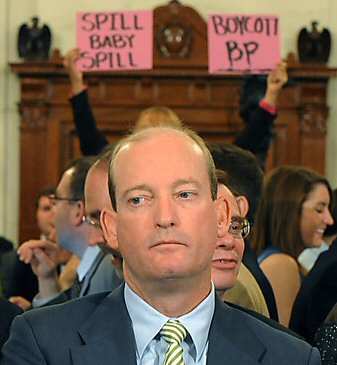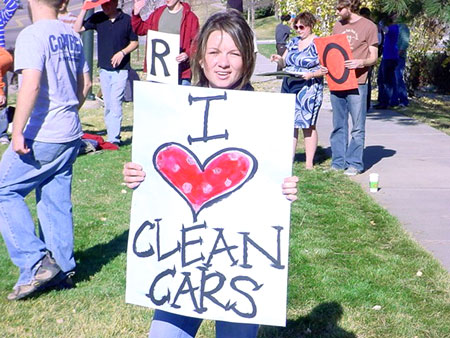Lockheed Martin’s Violent Definition of “Green”
Posted by keith on 16th June 2010
FOR IMMEDIATE RELEASE
LOCKHEED MARTIN ANNOUNCES NEW GREEN INITIATIVES FOR 140,000 EMPLOYEES, THEIR FAMILIES AND COMMUNITIES
BETHESDA, Md. – Lockheed Martin (NYSE: LMT) today announced new green initiatives to reach its 140,000 employees, their families and communities. The orchestrated effort is rolling out in conjunction with National Environmental Education Week (EE Week), the largest organized environmental education event in the United States.
Held each year during the week before Earth Day, EE Week coordinates environmental education outreach nationwide to increase Earth Day’s impact. Lockheed Martin will celebrate EE Week and Earth Day by introducing several new company-wide employee initiatives to encourage environmentally-friendly behavior at work, at home and in local communities.
“At Lockheed Martin, it is our goal to raise awareness of natural resource conservation and to help our employees take an active role in their communities,” said Dr. David J.C. Constable, vice president, Lockheed Martin Energy, Environment, Safety & Health. “With the reach of our organization’s network, we have the opportunity to inspire hundreds of thousands of individuals – starting with our employees, their families and communities – so that as a corporation, we can make a big impact one small action at a time.”
A program of the National Environmental Education Foundation, EE Week reaches millions of students with environmentally-themed lessons and activities. In further support of EE Week, Lockheed Martin donated $5,000 to create the EE Week Nature Center Map, which includes contact information for more than 2,000 nature and environmental education centers nationwide, and is a perfect way for educators to find local natural areas for field trips and outdoor study.
“We’re grateful to Lockheed Martin for making National Environmental Education Week’s nature center map possible,” said Diane Wood, president, National Environmental Education Foundation. “Giving children unstructured time to explore nature benefits both their physical and mental health. This nature center finder enables families to find nearby outdoor space easily so they can explore nature and have fun learning about local plants and animals.”
Lockheed Martin’s employee-based initiative surrounding EE Week is just a portion of the corporation’s overall Go Green business strategy. Lockheed Martin is committed to reducing its overall energy usage by building and operating greener, more-efficient buildings, embarking on Green IT activities, constructing on-site renewable energy projects and purchasing renewable energy credits. The Corporation also ranks among the top 50 organizations in the country in green power purchases based on kilowatt hours of power used, according to the United States Environmental Protection Agency Green Power Partnership. The Corporation’s long-term absolute goals through 2012 are to reduce carbon emissions, waste to landfill and water usage – each by 25 percent.
In addition to reducing its own environmental impact, Lockheed Martin is working with its customers in the areas of energy efficiency, management, next-generation alternative energy generation, and climate monitoring, Lockheed Martin provides a full range of energy solutions to the government and regulated industry, including the Department of Energy, state and regional energy organizations, utilities and businesses.
Headquartered in Bethesda, Md., Lockheed Martin is a global security company that employs about 140,000 people worldwide and is principally engaged in the research, design, development, manufacture, integration and sustainment of advanced technology systems, products and services. The Corporation reported 2009 sales of $45.2 billion.
###
For additional information, please visit: http://www.lockheedmartin.com
Media Contact: Matthew Swibel, 301-214-3178, matthew.swibel@lmco.com
When I received the above press release I realised it was beyond parody – I could have just posted it and left it at that; but then we moved house and the email was lost. Yesterday I discovered it again, and realised what needed to be done. The result of this you see below:
This is nothing more that the promotional video for Lockheed Martin’s “Going Green” initiative, interspersed with a range of Lockheed Martin’s own product videos, along with the Wikileaks Collateral Murder scene in which two children are severely injured in an Apache Helicopter attack in Iraq.
According to LM’s own website: “Arrowhead is the advanced electro-optical fire control system that Apache helicopter pilots use for safe flight in day, night, or bad weather missions.”
The link for the video is http://www.vimeo.com/12613450. Please distribute widely.
Posted in Campaigns, Company Policies, Corporate Hypocrisy, Subvertising | 4 Comments »











